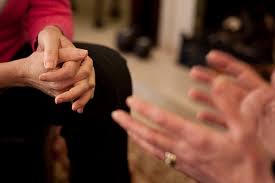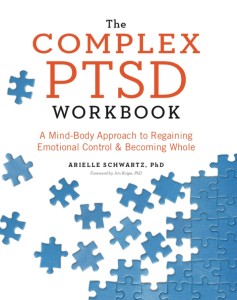Diversity Matters in Psychotherapy
Throughout history, we see acts violence that target people because they are of their race, ethnicity, gender, religion, or sexual orientation. After a recent series of hate crimes, I felt it important to take a closer look at the psychology of hate. Hate is motivated by dehumanization—the tendency to see other people as less than human. This act of making a person or group of people inferior has been a key motivating factor in prejudice, discrimination, and oppression.
“Ongoing discrimination and oppression can lead to Complex PTSD due to the long-term, chronic stress of uncertainty, threat of deportation, poverty, disability, or lack of a sense of social belonging. Therapists are in a unique position to empathically listen to and advocate for clients’ rights. Our actions can extend beyond the therapy room into the world as we advocate for social justice and the needs of people who have been marginalized.”
-Dr. Arielle Schwartz
Therapy and Social Justice
Privilege and power dynamics occur throughout all levels of society and can show up in the therapy room. In general, privileged individuals tend to take up more space, use larger postures and gestures, and tend to initiate more verbal communications. There are inherent power differentials between therapists, who tend to be perceived as experts, and clients who often come to therapy at vulnerable times in their lives. A feminist approach to therapy involves de-emphasizing the “expert” role of therapist by focusing on a collaborative model of treatment and inviting the authentic presence of the therapist.
Being an ally asks us to take responsibility for our own conditioned beliefs and perceptions. Instead of pushing away fear-based reactions, we learn to consciously explore and take full responsibility for our own discomfort. Otherwise, we might inadvertently push others away or make them wrong instead of owning our own fear.
Taking full responsibility for our own fear-based reactions involves becoming nonjudgmental and curious about ourselves and the people around us. This process generally asks that we slow down and engage in mindful observation of our thoughts, emotions, and body sensations. Now we have an opportunity to notice any tension or gripping that arises when we think about someone or a group of people who are different from us. We shine the light of awareness onto our own blind spots.
Privilege and Power
As part of my personal inquiry this week I sought to better understand privilege as an important part of the diversity conversation. I came across this article on the work of Peggy McIntosh, a woman’s studies scholar from Wellesley who runs the SEED project (Seeking Educational Equity and Diversity). She describes privilege as the “unearned advantage” that comes with being part of a group of people that have something of value and that is denied to other groups of people. McIntosh says that everybody has a combination of unearned advantages and unearned disadvantages in life; that “we’re all put ahead and behind by the circumstances of our birth.” Furthermore, life experiences continue to amplify both privilege and underprivileged status based upon access to opportunities such as education, work, medical care, and so forth.
The Science of Fear
Dehumanization is a terms that refers to the process of making other people less than human. By making another person “less than” we strip them of the qualities that make them relatable. This process can lead to overt (aggressive) or subtle (microaggressive) forms of harm. Importantly, we all risk engaging in behaviors that put down or push away other people who stir up our own uncomfortable feelings. We can all react by making someone wrong because we feel afraid.
We can all put up walls.
Looking at neuroscience, we learn that, if someone is unfamiliar to us, the neurophysiology in the brain will activate self-defensive fight or flight protective mechanisms. The amygdala (the brain structure associated with the emotion of fear) becomes activated upon exposure to “out group” images of faces of people who are racially or ethnically different from the observer (Nickerson, 2017). These fear-based reactions can then be reinforced when a culture creates narratives about groups of people that depict them as dirty, threatening, or dangerous. Sadly, research suggests that children as young as 5 years old can learn to equate racial difference with “less human”.
So, here are the key questions: Can we learn how to decrease our fear-based reactivity and reduce the harm associated with stereotyping, prejudice, or oppression? Can we reverse negative perceptions and beliefs once they have been developed? Can we transform hate into love?
From Hate to Love
Nickerson (2017) views prejudicial beliefs as a maladaptive memory that is maintained as a neural network in the brain. He proposes that just like any maladaptive memory, prejudice can be modified and changed through targeted therapy, especially, EMDR Therapy. Furthermore, another powerful way to facilitate changes in prejudicial beliefs and behaviors is through experiential inquiry that focuses on helping the individual take full responsibility for their own fear-based reactions.
Again, neuroscience offers some insight. Engagement of the prefrontal cortex (the most evolved portion of the brain) allows us to mediate fear-based activity in the amygdala. Mindfulness and embodiment practices strengthen the functioning of the prefrontal cortex. As we reflect upon our present moment experiences we can choose how to respond rather than default to knee-jerk reactivity. Of course, this process requires an openness on the part of the individual to recognize their own beliefs and behaviors that are harmful…and a willingness to change.
I cannot ensure anyone else’s capacity to look at their own relationship to bias, prejudice, or privilege. But, I can start right here and now, with myself by taking responsibility for my own conditioned beliefs and perceptions. I believe that one antidote to the psychology of hate involves a willingness to compassionately see ourselves as imperfect, fallible, vulnerable, and, profoundly human. Acceptance of our own humanness can then become a window for compassion and empathy toward others…even those who are very different from ourselves.
Agree? Disagree? I’d love to hear your thoughts and feedback in the comments below.
Want a mind-body approach to healing PTSD?
The Complex PTSD Workbook, now available on Amazon! Click here to check it out and increase your toolbox for healing. Whether you are a client or a therapist this book will offer a guided approach to trauma recovery.
About Dr. Arielle Schwartz
Dr. Arielle Schwartz is a licensed clinical psychologist, wife, and mother in Boulder, CO. She offers trainings for therapists, maintains a private practice, and has passions for the outdoors, yoga, and writing. Dr. Schwartz is the author of The Complex PTSD Workbook: A Mind-Body Approach to Regaining Emotional Control and Becoming Whole. She is the developer of Resilience-Informed Therapy which applies research on trauma recovery to form a strength-based, trauma treatment model that includes Eye Movement Desensitization and Reprocessing (EMDR), somatic (body-centered) psychology and time-tested relational psychotherapy. Like Dr. Arielle Schwartz on Facebook, follow her on Linkedin and sign up for email updates to stay up to date with all her posts.







